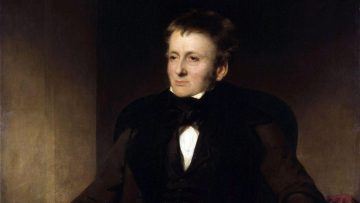Jane Darcy at the TLS:

But to dismiss De Quincey as either a charming or a duplicitous figure on the margins of Romanticism is to ignore some of his most astonishing writing. He created a new kind of autobiography, constructed through resonant fragments grounded in dreams and reveries. Burwick describes him as “the first conscientious autobiographer of the interaction between conscious and subconscious experience”. He wrote eloquently on everything from political economy, psychology and Kantian philosophy to issues of literary style, but he could also sustain a highly inventive comic voice, notably in his satirical essays on violence. Robert Morrison, in this edition of Thomas De Quincey for the 21st-Century Oxford Authors series, presents an excellent selection for a new reader: Confessions and its sequel, Suspiria de Profundis, substantial extracts from his pleasingly waspish biographical essays from Recollections of the Lakes and Lake Poets and the great essays, including “On the Knocking at the Gate in Macbeth” and “On Murder Considered as One of the Fine Arts”. Morrison is an experienced De Quincey scholar, contributing to the The Works of Thomas De Quincey edited by Grevel Lindop (twenty-one volumes, 2000–3), editing the Oxford World’s Classics Confessions of an English Opium-Eater and Other Writings (2013) and writing a biography of De Quincey, The English Opium-Eater (2009). Because most of De Quincey’s writing appeared in journals, the task of sourcing his work has always posed editorial challenges. Added to this, De Quincey obsessively revised and rewrote his work, and his recovered manuscripts are often damaged and difficult to read. Morrison is a fine textual scholar, and in this edition includes interesting selections of manuscript material offering textual variants. Morrison’s extensive notes carefully explain matters such as De Quincey’s numerous Latin quotations (he was an exceptional, if somewhat tiresome, classicist), arcane vocabulary and new coinages.
more here.
